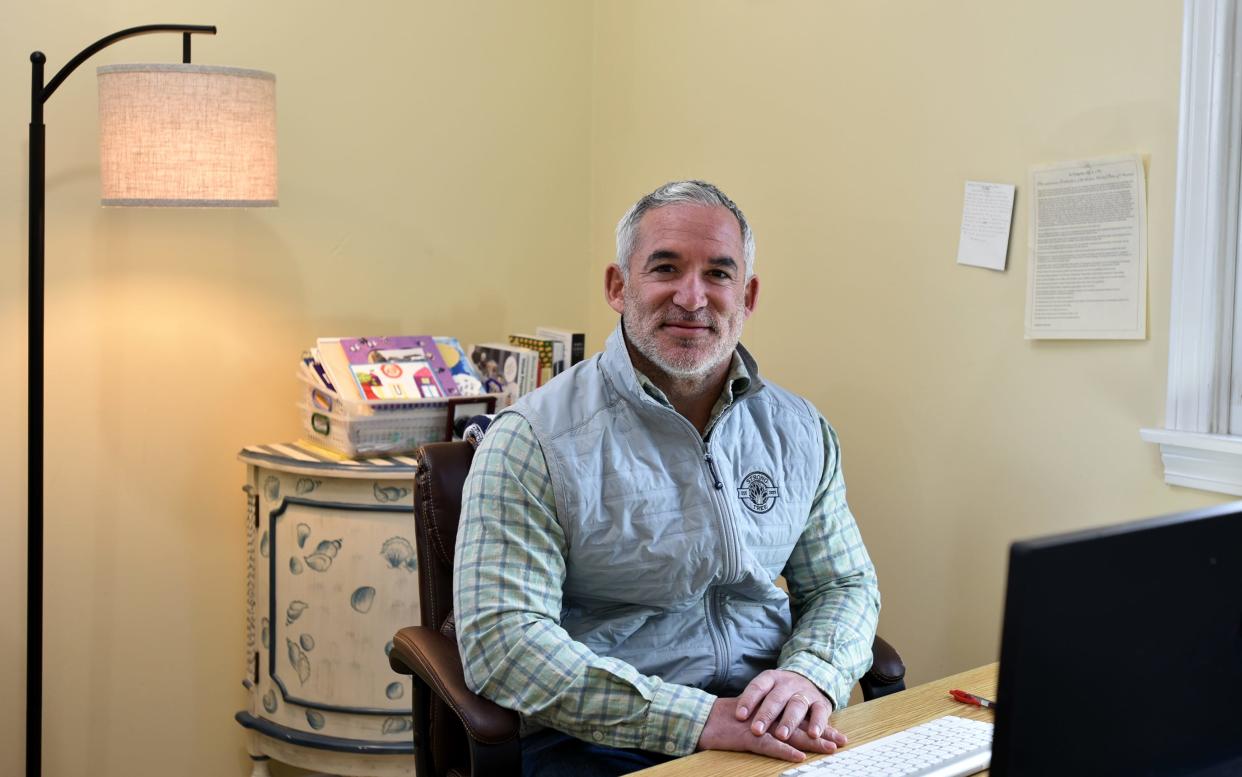'Overwhelmingly appalled response.' Cape business part of effort to close Mass. wealth gap
MARSTONS MILLS — A $10,000 grant to a small company in Barnstable is, hopefully, one small step toward closing the racial wealth gap in the state.
Donald Chapman, founder of Strong Tree Engineering, is counting on the grant from National Grid to grow his business. The Barnstable-based company was one of 16 minority-owned Massachusetts businesses selected to receive a $10,000 capacity building grant.
Chapman’s civil and environmental engineering firm provides land survey, planning, design, permitting and construction management services. Founded in 2021, the firm just added its fifth full-time employee to the payroll. But it’s hard for small businesses to grow and establish themselves.

Like any business, Chapman has to cover costs, make payroll, build relationships, establish a body of work and find projects to bid on. He intends to use the grant to develop the company’s website, invest in marketing efforts, tools and software programs − all things that take money.
Access to adequate, affordable capital is the number one challenge for scaling Black-owned businesses, according to Xavier Andrews, chief communications and marketing officer for the Black Economic Council of Massachusetts. The Council nominated Strong Tree and three other Black-owned businesses for the National Grid’s Small Business Impact Initiative, a $500,000 three-year project.
The initiative is part of National Grid’s expanded philanthropic program “Grid for Good,” which aims to address workforce development and social equity among other things, hence the focus on minority-owned businesses. The company has partnered with four organizations. Besides the Black Economic Council of Massachusetts, they are working with the Asian Business Empowerment Council, Amplify Latinx and the Massachusetts LGBT Chamber of Commerce.
"The need is great," said Alisha Collins, National Grid's director of community impact and engagement, "This is an opportunity for us to distribute unrestricted dollars to small businesses playing critical roles in the communities where they exist."
More than 450 small businesses from all corners of the state applied for the 16 grants, Collins said.
Report: Median net worth of Black Bostonians $8, compared to $247,000 for white Bostonians
According to “The Color of Wealth,” a 2015 report by the Federal Reserve Bank of Boston, the wage and wealth gaps between white and Black people are widening. The median net worth of Black Bostonians was only $8, compared to the $247,500 median net worth of white Bostonians. The report looked at assets and debts, including savings and checking accounts, homeownership, retirement accounts, student loans, mortgage and medical debt.
The Black Economic Council of Massachusetts, a statewide, member-based nonprofit, was born from “the overwhelmingly appalled response to those findings,” said Andrews.
Expanding the Black economy in Massachusetts will in turn expand the entire state economy, according to Andrews. The Massachusetts Taxpayer Foundation has come to the same conclusion. The Foundation estimates that closing the Massachusetts racial wealth gap will grow the economy by $25 billion in only five years.
The Council’s work is done on several fronts, Andrews said. The Council provides back-office support. It helps sole-proprietor firms convert to employer firms. With access to capital, those businesses are more likely to grow and hire employees of color, which grows the economy. The Council wants to position Black entrepreneurs for the emerging climate industry. And the Council is focused on improving municipal contract outcomes for underrepresented providers.
The Federal Reserve Bank’s reports have policy implications. In 2022 the city of Boston changed policies and boosted spending with Black businesses resulting in a total of $20 million in non-construction contracts, according to the Black Economic Council’s 2022 impact report.
Chapman hopes to leverage the grant funds to position his company for a bigger role in creating sustainable solutions on the Cape. Recently the firm surveyed land for a wetland restoration project in Marstons Mills.
“We've done work with Kingston, Scituate, and subcontracted with town of Barnstable,” Chapman said. “We would love to build deeper relationships and start business on a municipal basis, especially on the Cape and southeastern Massachusetts region.”
Strong Tree is a certified Minority Business Enterprise with the Massachusetts Supplier Diversity Office. The designation is meant to ensure that socially and economically disadvantaged small business owners are included in the state's procurement and contracting opportunities. Some agencies are required to award a certain number of contracts to such enterprises.
Chapman said his firm would most likely be a subcontractor for a big company that was awarded a municipal bid. Those big companies have established relationships with subcontractors. Breaking into networks already established between big contractors and subcontractors is a challenge especially for small businesses.
One of his ideas is to use the money to subscribe to HubSpot, a software program that integrates information on a company’s sales, marketing, customer service and management functions. It has a monthly subscription fee, but Chapman would also have to pay for his team to learn how to use it.
The $10,000 grant would help.
“A little support goes a long way,” Andrews said. “That's what these (National Grid) grants are about.”
Denise Coffey writes about business, tourism, and a range of issues facing Cape Cod residents and municipalities. Contact her at dcoffey@capecodonline.com.
Thanks to our subscribers, who help make this coverage possible. If you are not a subscriber, please consider supporting quality local journalism with a Cape Cod Times subscription. Here are our subscription plans.
This article originally appeared on Cape Cod Times: Cape Cod's Strong Tree Engineering aims for sustainable solutions
